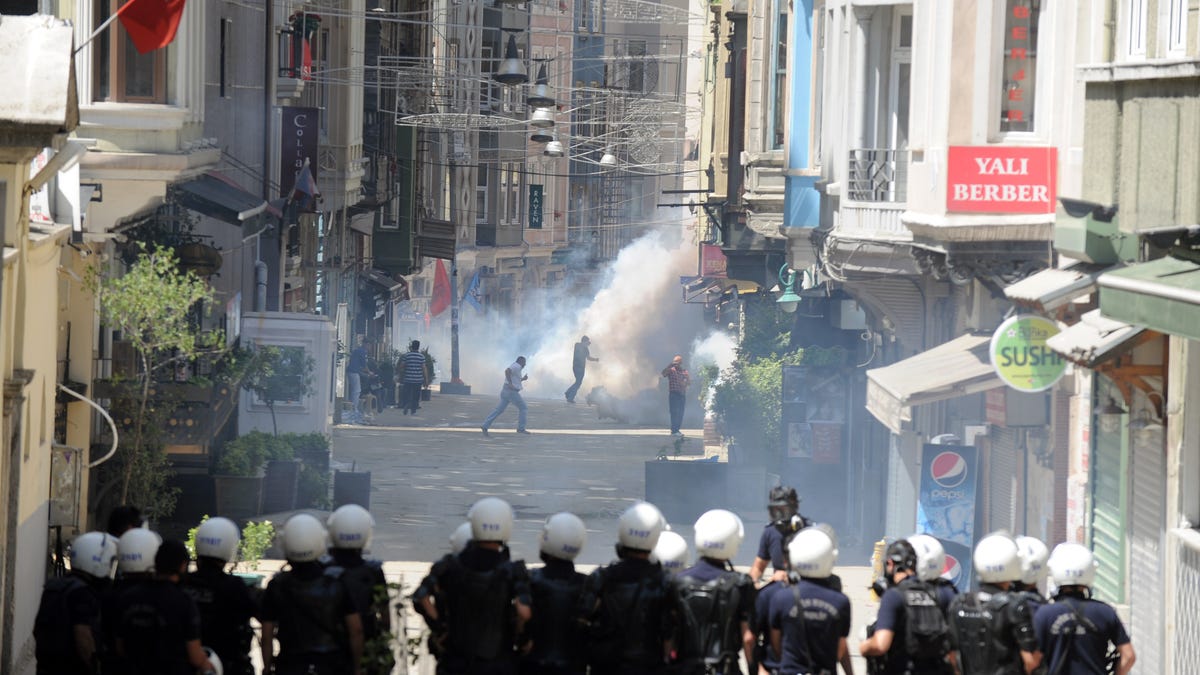Turkey tracks down Twitter provokers
Awash in political controversy, Turkey goes after social media users it believes are spreading propaganda.

Turkish authorities have detained 25 people accused of using social media to spread false information and provoke antigovernment riots, according to several reports.
Last week, protests erupted in Izmir, the third most populous city in Turkey, over the government's decision to replace Gezi Park, one of a few remaining green spaces in central Istanbul, in Taksim Square with a shopping mall. Demonstrations devolved into a broader critique of Prime Minister Recep Tayyip Erdogan's authoritarian regime and turned violent when police used tear gas and other tactics to break up protests.
Tuesday night, police brought in several people suspected of spreading false information on Twitter and other social media sites, CNN confirmed with an official at the police station in Izmir. The detained parties, reportedly all between the ages of 20 and 25, are said to still be in custody.
The lock-up follows Erdogan's public comments about Twitter's role in escalating protests. "There is a trouble called Twitter," Erdogan said during a television interview on Sunday, the Los Angeles Times reported. "Unmitigated lies are there [on Twitter]."
Social media is the frequent friend of protestors. In 2011, Twitter helped propel the Arab Spring movement, a series of protests and demonstrations that spread across the Middle East.

